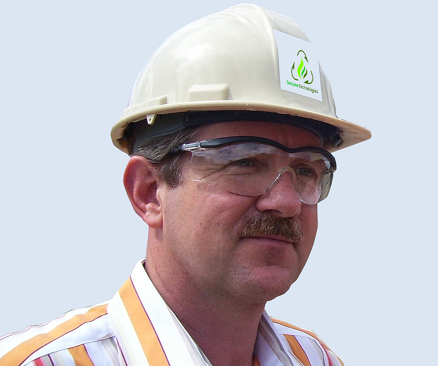A disruptive technology that eliminates the need for landfills will soon be operational on Nova Scotia’s South Shore, according to Peter Vinall, CEO of Chester-based Sustane Technologies Inc.
Sustane has developed technology that allows solid waste destined for landfills to be made into clean and valuable products such as fuel pellets.
The Sustane facility to be built near the Chester landfill at Kaizer Meadow will divert over 90 per cent of material away from the landfill.
Vinall said the Sustane technology is unlike other techniques that create biomass from waste because it lowers contamination by plastics to a negligible 0.1 percent.
Such a low point of contamination means the products have commercial value.
“This is the first technology that can take raw garbage destined for landfill and separate it into clean products,” said Vinall, who has worked around the world in the bio-energy and pulp and paper industries.
Sustane was the overall winner in the 2016 I-3 Technology Start-up Competition, the biennial contest run by Innovacorp, which recognizes the best new innovative business in Nova Scotia.The company’s winnings totaled $225,000.
“The win brings money which is always important, but more than that is the validation,” said Vinall, whose previous roles include president and CEO of the AV Group in New Brunswick.
The Impact of the I-3 Competition
The Sustane core technology was developed by the company’s second co-founder and chief technology officer Javier De La Fuente of Spain.
Vinall and De La Fuente met three years ago. “I was looking for something like this and what he was doing was amazing. When we combined this with a new cleaning idea we had the complete solution….” Vinall said.
The pair founded Sustane in 2014 with chief financial officer Robert Richardson, an accountant and businessman.
Work on the $15 million Chester plant will begin this spring.
When it’s completed in the third quarter of next year, the plant will employ 20-25 people in a 24-7 operation.
Vinall said Chester should be able to close its landfill within a few years. Initially, the landfill will be needed to bury a sand-glass grit waste, equal to 5-10 per cent of current waste. In the future, a use such as road construction may be found for it.
He said the plant will produce no pollution. “It’s a benign process. Our process does not use combustion but rather steam cooking.”
The fuel pellets produced will be sold for power generation, while plastics and metals will be recycled. Some of the plastic will be converted to oil that will be used to run the plant.
The company sees an opportunity to build a total of three plants in Nova Scotia to deal with almost all landfilled garbage. That would make Nova Scotia a world leader in recycling. Sustane is also talking to other communities in Canada and the U.S.
The company has proven its technology with funding from Innovacorp and the Atlantic Canada Opportunities Agency.
To get the plant built, Sustane is securing a further $15 million. “Some federal money is available, and we are securing both debt and equity investors,” Vinall said.
Vinall said he’s learned a lot about being an entrepreneur.
“It’s been month to month surviving at times,” he said. “But we’ve proven the technology and raised enough money.”
He said the technology offers environmental benefits and saves cities money on landfilling.
“Our facility in Chester will be equivalent to taking 17,000 cars off the road in terms of greenhouse gas impact and will also prevent the possibility of contaminants leaching from landfill into groundwater.”
Eliminating landfill slashes the production of the greenhouse gas methane.
“Animals and landfill are the two main sources globally of methane, each accounting for about a third of the total,” he said.
“Organic material rots and gives off methane, which is 25 times as bad as CO2 when it comes to warming.
“I remember from my days growing up on a dairy farm near Melbourne, Australia that cows belch a lot of methane.”
Disclaimer: Innovacorp is a client of Entrevestor.










